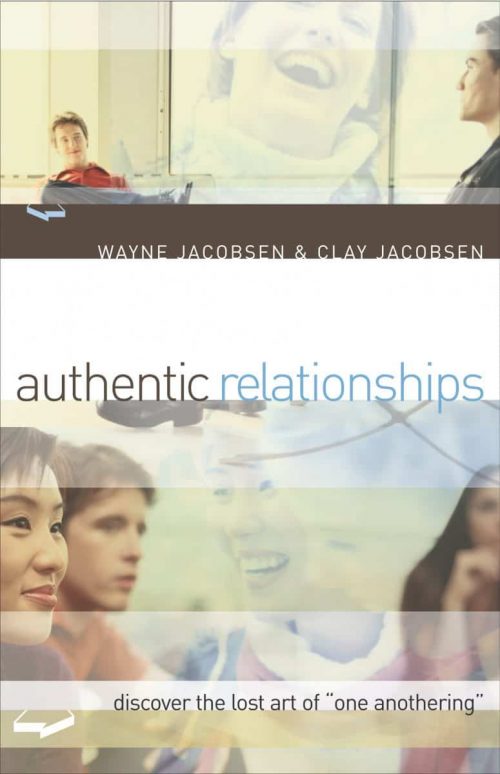
Authentic Relationships: Instructing and Admonishing One Another
The person who hears the reproof that leads to life is at home among the wise.
King Solomon (Proverbs 15:31)
Are you a Geese or Sparrow?
Geese travel far and can increase their range by 71% by flying in a V-formation. Furthermore, the stronger Geese in a flock rotate the lead position so that no one bird wears out. Sparrows do not fly in an efficient formation because they are not going far. Likewise, if we are not determined to “grow” far as a Christian, then we do not tend to fly in an efficient formation. However, those that have chosen to “never be satisfied” with being less than Christ-like will naturally share their journey to “grow” farther.
Realize, Christianity is more than just attending services, doing church work, and trying to be good. If Christianity is just about rituals, routines, and morals, our fellowship will suffer. We can implement all of the proven teaching strategies, but our meetings will be as awkward as sparrows trying to fly in formation. Even bringing up something about God or Scripture causes the meeting to grow awkward.
However, when Christianity is a life of growing dependence on God through the joys and challenges of our circumstances, then pooling our wisdom becomes as natural an extension of that life for us as it is for geese to fly in formation. When God is more real to you than the weather and the events of your day, then You will find Him filling your conversations, and fellowship will be immediate, powerful, and alive.
Pooling Our Wisdom
Loneliness flourishes in large crowds. Christianity is a journey into ever-deepening levels of relationships and ever-widening spaces of freedom. Those on this journey will naturally talk about it in every conversation they have. The best conversations will occur when you connect with someone else who is on this journey. With the sharing, the journey will be as natural as breathing.
Journey Talk
True Christianity is not about conformity to rules but rather transformation through relationships. Rules, routines, and rituals are the building blocks of religion, not relationships. Relationships are organic, and therefore they defy all attempts to fit into any one-size-fits-all model.
People caught up in religion focus on:
- Meeting standards by human effort.
- Finding fault.
- Confronting failure.
- Blaming others.
- Controlling others with the Word of God under the guise of Biblical authority.
- Maintaining accountability to belittle others and make themselves look better.
People in grace-based relationships focus on:
- Loving God more freely and one another more openly.
- Trusting God instead of themselves.
- Being real instead of repeating “right” answers.
- Taking the risk to follow God instead of meeting people’s expectations.
- Accountability for the purpose of support and encouragement.
- Biblical authority for the purpose of protection and freedom.
- Allowing people to have their unique journey with God so He can transform them into His likeness rather than trying to force everyone into a one size fits all mold.
- Lifting people higher instead of weighing them down with added obligations and responsibilities. (2)
Relational Christianity
“Orthodoxy, or right opinion, is at best a very slender part of religion. Though right relationships cannot subsist without right opinions, yet right opinions may subsist without right relationships. There may be right opinion of God without either love or a right relationship with Him. Satan is proof of this. “
John Wesley
You believe that God is one; well and good. Even the demons believe that – and tremble with fear. (James 2:19)
Realize, when we were born again, we did not simply come into a new understanding of God; we entered a new relationship with God! A relationship where:
- God is our Father (John 20:17. Galatians 4:6)
- Jesus is our older Brother (Romans 8:29. Hebrews 2:11)
- We are God’s children (John 1:12. 1 John 3:1)
- We are a part of God’s family (Ephesians 2:19)
- We are brothers and sisters! (James 2:15)
This relationship with God must also be the focus of living the Christian life. Our salvation, which began by entering a relationship with God, grows and deepens by cultivating that relationship (Colossians 2:6).
“Don’t let your learning lead to knowledge. Let your learning lead to action.”
Jim Rohn
Seekers of God are not those who just sit in church week by week to hear lectures on God. Realize, storing more information about God in our minds does not mean we possess more of God in our hearts! Thinking about God is not relating to God. God’s desire is to raise a family, not to enroll students. Information produces education while Jesus produces life! It is to Him, as a person, we must come, not simply information about Him. Our relationship with God is based upon my love for Him, which results in obedience to His commands (John 14:21)
No matter the outward success, big or little, great or small, when I am loving and obeying God, I can be secure, confident, and at peace (Philippians 4:11-13). In the security of that relationship, I can serve God in any situation in which He places me. Servanthood brings simplicity and is not measured by results but rather by obedience. It is lived not in the atmosphere of drivenness and pressure to perform but in simply being attentive to the Master’s voice, available to His call, and obedient to His word. Servanthood is lived in the atmosphere of a relationship with the Master. The person who seeks to be a success is offering to God his work. The one who seeks to be a servant is offering to God himself (Matthew 11:29).
The number one requirement for coming into intimacy and companionship with God is a passion for Him. Not a passion for His blessings, fruitful service, spiritual knowledge, or His guidance. That is, we determine how close God is to us. (3)
We must desire His presence, not His presents! (James 4:8)
Instruct One Another (Romans 15:4)
Teaching is the best way to learn! Teaching does not always involve standing in front of a group of people.
We are all teachers when we:
- tell someone about a favorite article, or book, or thought
- show a child how to use a fork
- talk about our hobbies
God wants to utilize each of us to share his wisdom with others. Be ready to share what God has revealed to you with those He brings along your side.
Admonish One Another (Colossians 3:16)
Admonishment – our willingness to be gently honest with people we see making hurtful choices. The New Testament uses terms like “encourage” or “build-up” 56 times and “rebuke” or “admonish” only 7 times. However, we are not to use admonishment to point out the faults of others, so we feel better about ourselves – this kills genuine friendship! We are not to confront constantly or hold one another to exacting standards. We are to encourage one another along the journey of being transformed by God and only admonish others when it helps them walk in greater wisdom. Our past encouragement will make any admonishment easier to heed. Do not force admonishment on others. Share what you see (the facts) and trust the Holy Spirit to make it clear to them. Remember, we are only sharing a journey; we are not called to badger one another into righteousness or nit-pick one another’s faults (Matthew 7:3-5). (2)
Authentic Relationships Series:
- Authentic Relationships: Introduction
- Authentic Relationships: Loving One Another
- Authentic Relationships: Forgiving, Accepting, and Bearing with One Another
- Authentic Relationships: Being Devoted to Another and Honoring Another Above Ourselves
- Authentic Relationships: Greeting and Being Hospitable to One Another
- Authentic Relationships: Being Kind, Compassionate, and Sharing with One Another
- Authentic Relationships: Serving, Carrying Burdens, and Building Up One Another
- Authentic Relationships: Instructing and Admonishing One Another
- Authentic Relationships: Praying for One Another
- Authentic Relationships: Confessing Your Sins to and Being of the Same Mind Toward One Another
- Authentic Relationships: Submitting to One Another
Shalom
(Security, Wholeness, Success)
Peace
Dear friend, I pray that all may go well with you and that you may be in good health, just as it is well with your soul. (3 John 1:2 NET)
(1) Select the link to open another article with additional information in a new tab.
(2) This blog adapted from Authentic Relationships: Discover the lost art of “One Anothering” by Wayne Jacobsen (http://www.lifestream.org) and Clay Jacobsen. ISBN-13: 978-0801064517
(3) “Relational Christianity: Experiencing intimacy and companionship with the living God” by Steve Meeks, Publisher: Calvary Pub; Edition Unstated edition (1991), ISBN-10: 0963042505, ISBN-13: 978-0963042507


